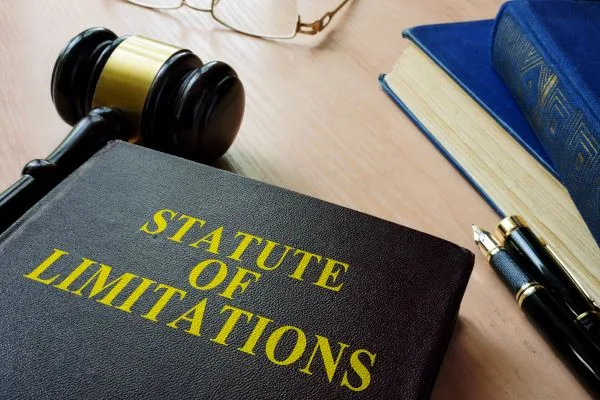Understanding Florida Statute of Limitations For Personal Injury Cases

A statute of limitation sets a time limit for filing a lawsuit. The main aim is to ensure a case is heard while evidence is still accessible and raw. This is one of the reasons why people are advised to contact personal injury lawyers as soon as an accident occurs. The statute of limitation in the U.S. differs from one state to the next.
Statute of Limitations in Florida for Personal Injury
Personal injury describes bodily harm suffered after an accident. The most common cause of personal injury is car accidents.
Florida statute of limitations was changed to two years from the accident date for bodily injuries. In this case, a victim has two years to file a case under personal injury from the day of the accident. If a lawsuit isn’t filed within the stipulated time, you can’t file a lawsuit later. This is the general rule, but there are a few exceptions.
Florida statute of limitation is set to two years for a lawsuit that is negligence based. This theory applies to many personal injury cases, including car accidents. The two-year variation took effect on March 24, 2023. If a personal injury happened before this date, the former version of four years to file a lawsuit applies from the day of the accident.
The statute of limitation in Florida should inspire you to act as fast as possible so that you are not time-barred from getting justice. According to the set rule, if you suffer personal injuries from being hit by a car on July 13, 2023, you need to file a claim by July 13, 2025. Such cases should never be pushed to the last minute. Starting early gives you time to handle everything thoroughly.
Personal Injuries Included in the Statute of Limitations in Florida
The statute of limitations covers different types of personal injury cases. They include:
Car accidents: These are the most common. The statute of limitations covers personal injury and property damage as well.
Slip and Fall accidents: You have two years to file a claim for this type of accident in Florida from the date of your accident. This covers premises liability claims lodged against public entities and private property owners.
Criminal acts: Assault and mugging both fall under the criminal act. If they cause personal injury, you can file a claim. Note that the person responsible for the injuries can face criminal charges, but you can try to get more compensation from them for personal injury. This needs to be within the specified duration.
Personal Injury Statute of Limitation Exceptions in Florida
Legal matters come with exceptions, and the statute of limitations is no different. Some of the exceptions in Florida include:
Incapacitation
Serious accidents can lead to the incapacitation of the victim. In such a case, pursuing legal claims may be hindered by injuries or hospitalization. Serious accidents may demand extensive medical procedures like surgery which may not give you any time to handle the legal aspects. Consider someone who falls into a coma after an accident. They may only try to get justice after they recover. In such circumstances, the statute of limitations is stretched to seven years after the accident.
Minors
When an accident injures a person below 18 years, the statute can be stretched to seven years. If you are almost 18, the two-year limitation starts on your birthday.
When a Defendant Leaves Florida
If the party responsible for the accident flees the state, the statute of limitations will be paused until authorities can locate the responsible party. The same applies when a defendant hides their identity to avoid being sued. Time is given to find the defendant.
Child Sexual Abuse
The statute of limitations in Florida does not include sexual abuse claims against children. No matter how much time has elapsed, this kind of sexual abuse claim can be filed at any time. This is because young children may fail to discuss sexual abuse because they fear their abuser. Approximately 93 percent of abused children know their perpetrators. Children may not be fully aware of what happened. In this case, statutes of limitations would make it hard to get justice.
Government Defendant
Personal injuries can happen while riding on public transport or walking in a government-controlled area. A government car can hit you or your property, or you can sustain injuries within government property. If a government agency causes a personal injury, you need to make a claim within three years. The recoverable damages are limited.
Commencement of Personal Injury Lawsuits in Florida
A personal injury lawsuit in Florida starts when you file your petition in court laying down claims against the defendant and serve them to inform them that you are suing them.
If you only sustained minor injuries and don’t intend to ask for over $8,000 from the plaintiff, consider filling the case in the small courts’ claims.
Shared Liability
It’s not unusual for the defendant to come out to say that you are also to blame for the accident to some extent. If this is proven beyond doubt, the compensation you receive can differ. The modified comparative negligence rule is applied in Florida in such cases. The damages you are supposed to get are reduced by the percentage of your share of negligence. If the share is over 50%, you don’t get anything. This rule is not applied to wrongful death lawsuits or medical malpractice cases in Florida.
Getting a Lawyer
Some laws and statutes impact personal injury claims in Florida. If you suffer personal injury or are accused of causing one, contact a lawyer as soon as possible.
By working with a lawyer who is experienced in handling such cases in the area, you stand a better chance of getting justice and fair compensation. Lawyers understand the Florida justice system and can guide you through the processes to give you time to concentrate on other things.


